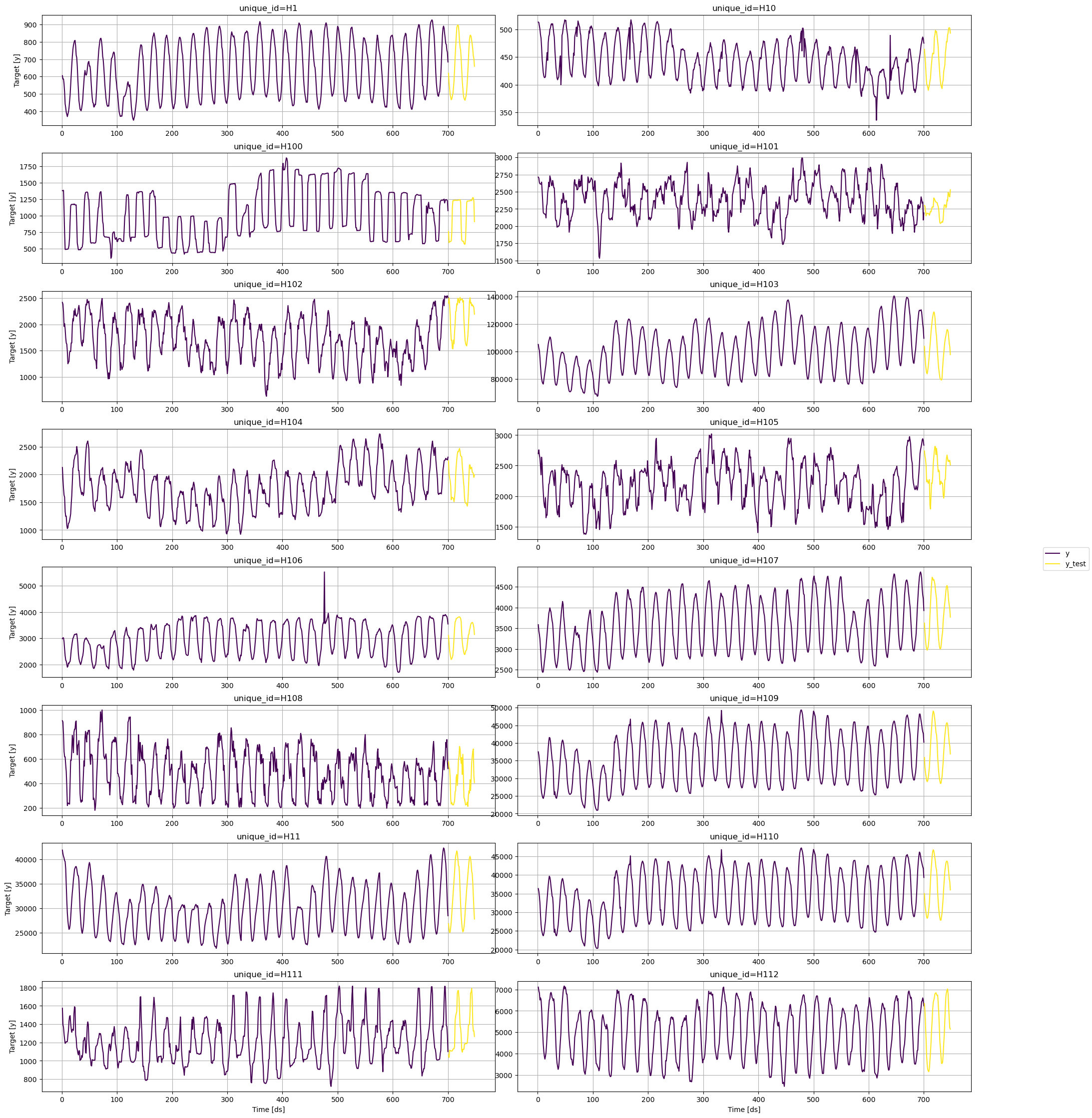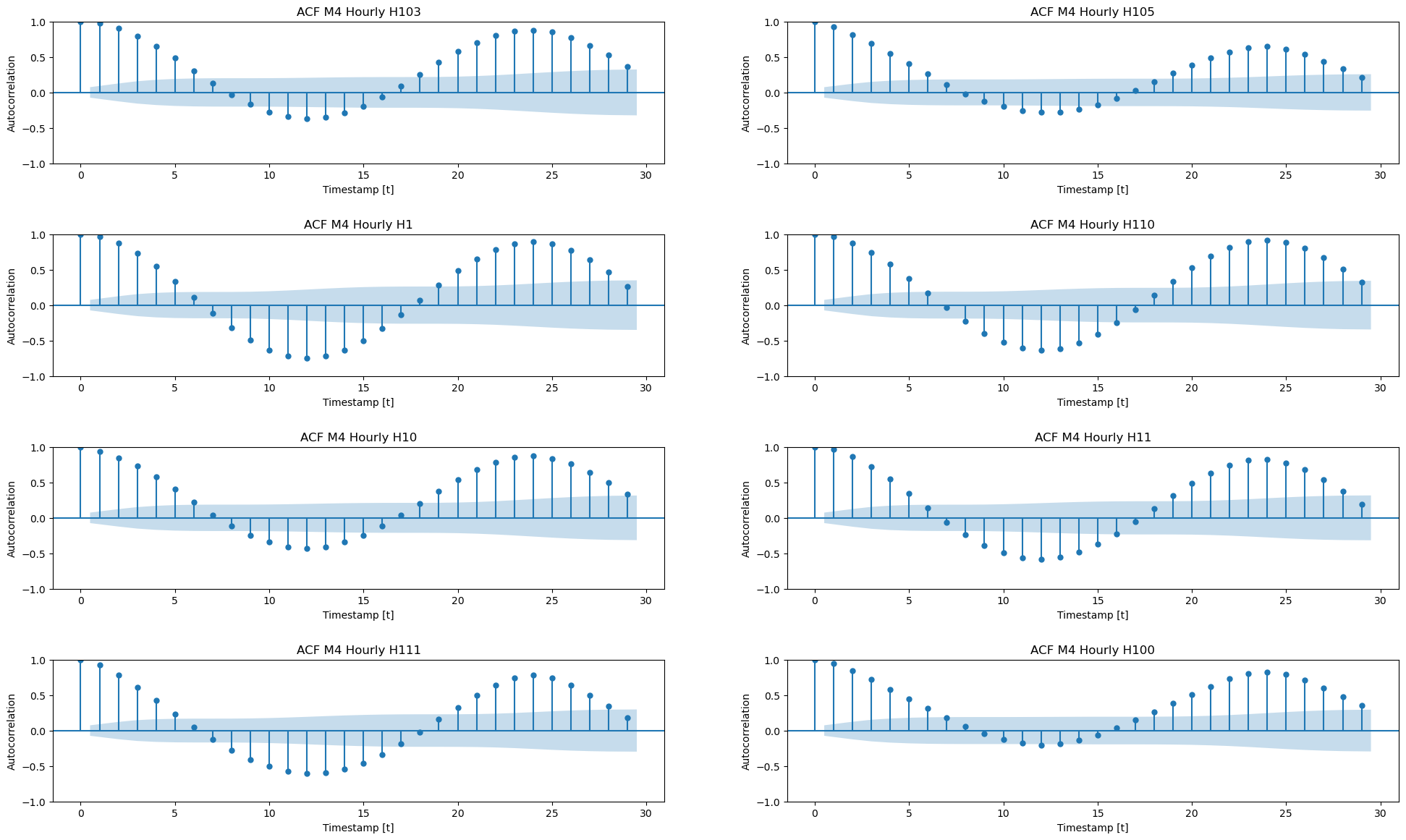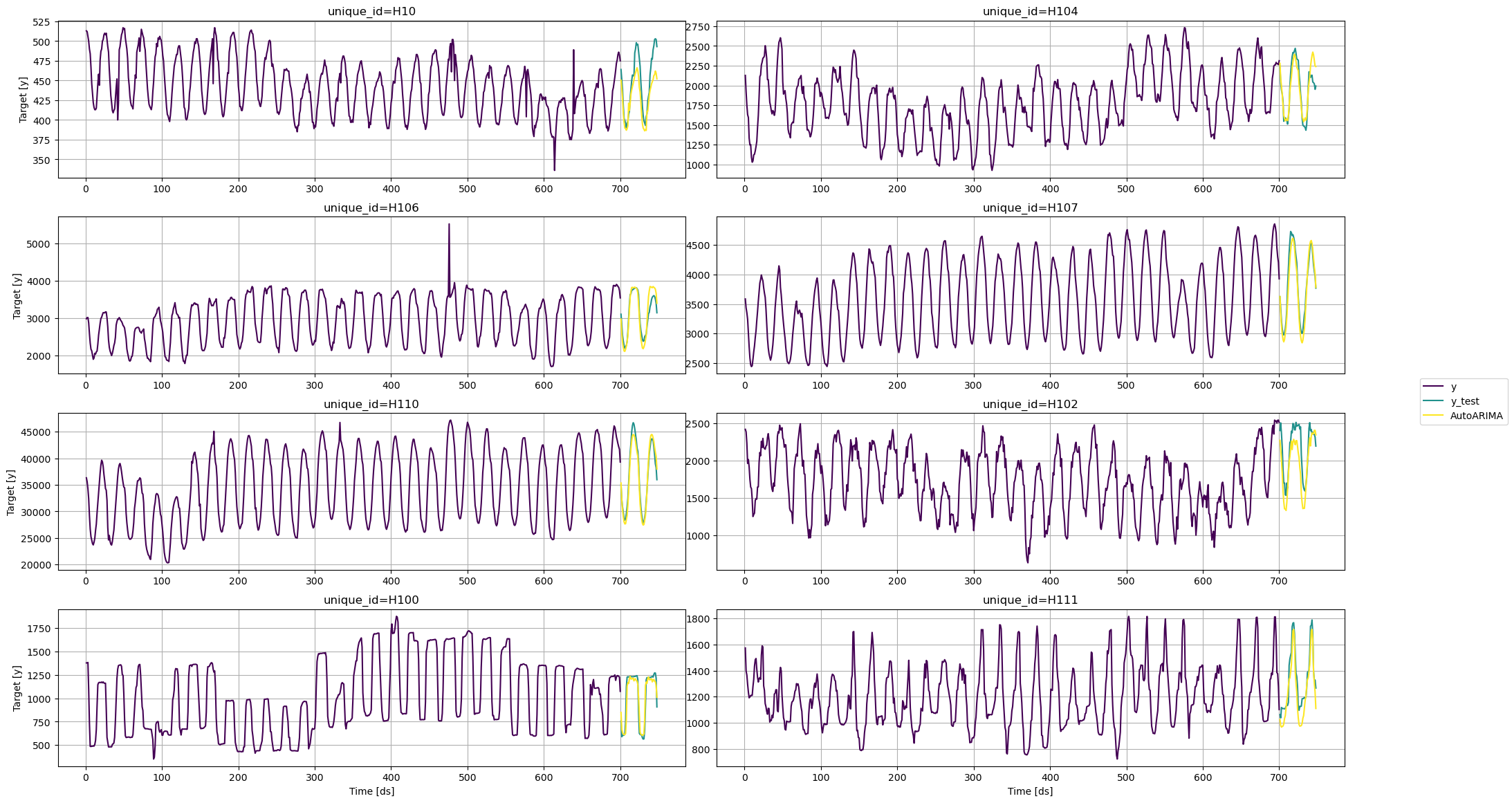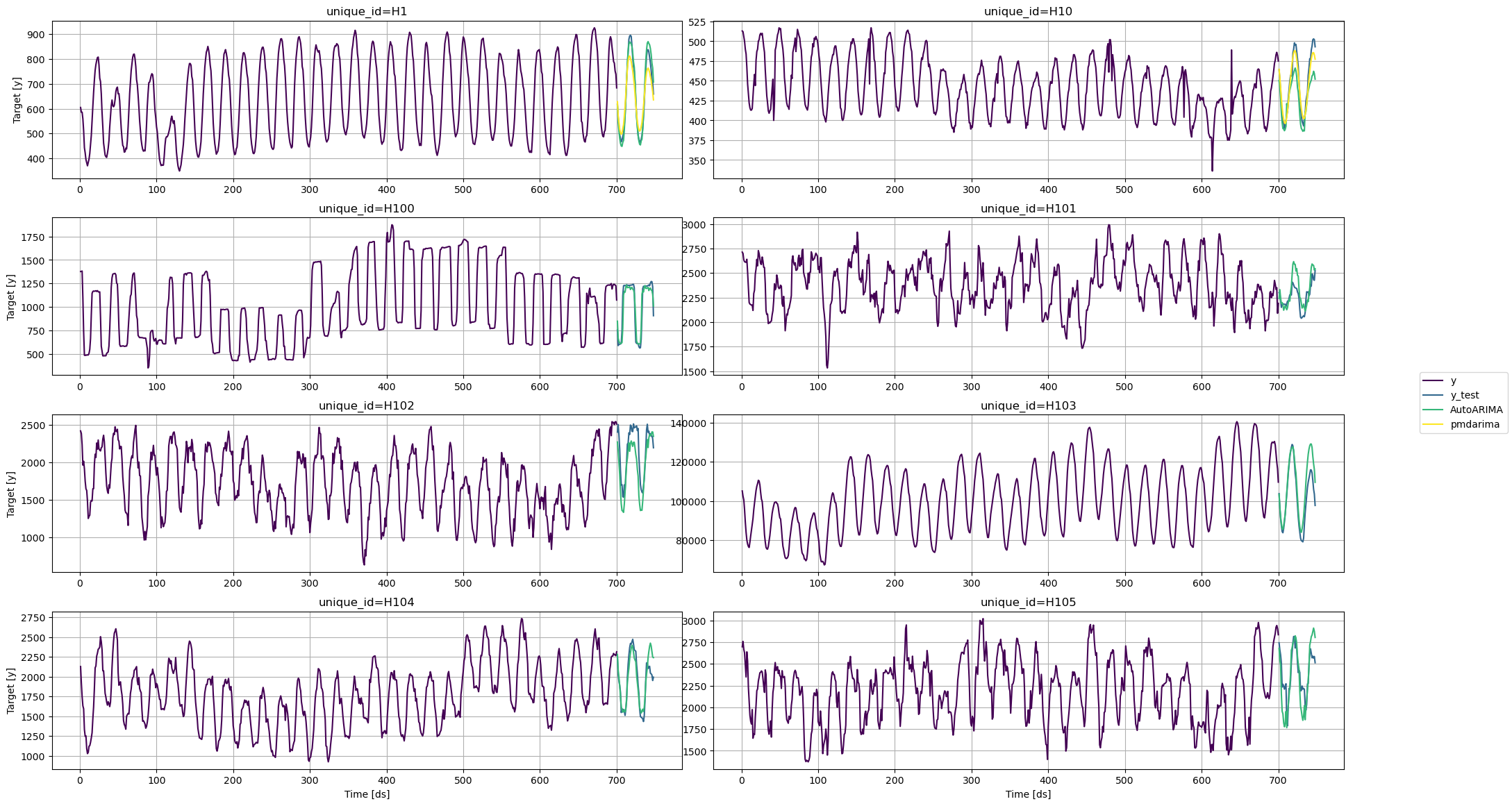Init signature:
AutoARIMA(
d: Optional[int] = None,
D: Optional[int] = None,
max_p: int = 5,
max_q: int = 5,
max_P: int = 2,
max_Q: int = 2,
max_order: int = 5,
max_d: int = 2,
max_D: int = 1,
start_p: int = 2,
start_q: int = 2,
start_P: int = 1,
start_Q: int = 1,
stationary: bool = False,
seasonal: bool = True,
ic: str = 'aicc',
stepwise: bool = True,
nmodels: int = 94,
trace: bool = False,
approximation: Optional[bool] = False,
method: Optional[str] = None,
truncate: Optional[bool] = None,
test: str = 'kpss',
test_kwargs: Optional[str] = None,
seasonal_test: str = 'seas',
seasonal_test_kwargs: Optional[Dict] = None,
allowdrift: bool = False,
allowmean: bool = False,
blambda: Optional[float] = None,
biasadj: bool = False,
season_length: int = 1,
alias: str = 'AutoARIMA',
prediction_intervals: Optional[statsforecast.utils.ConformalIntervals] = None,
)
Docstring:
AutoARIMA model.
Automatically selects the best ARIMA (AutoRegressive Integrated Moving Average)
model using an information criterion. Default is Akaike Information Criterion (AICc).
**Note:**<br/>
This implementation is a mirror of Hyndman's [forecast::auto.arima](https://github.com/robjhyndman/forecast).
**References:**<br/>
[Rob J. Hyndman, Yeasmin Khandakar (2008). "Automatic Time Series Forecasting: The forecast package for R"](https://www.jstatsoft.org/article/view/v027i03).
Parameters
----------
d : Optional[int]
Order of first-differencing.
D : Optional[int]
Order of seasonal-differencing.
max_p : int
Max autorregresives p.
max_q : int
Max moving averages q.
max_P : int
Max seasonal autorregresives P.
max_Q : int
Max seasonal moving averages Q.
max_order : int
Max p+q+P+Q value if not stepwise selection.
max_d : int
Max non-seasonal differences.
max_D : int
Max seasonal differences.
start_p : int
Starting value of p in stepwise procedure.
start_q : int
Starting value of q in stepwise procedure.
start_P : int
Starting value of P in stepwise procedure.
start_Q : int
Starting value of Q in stepwise procedure.
stationary : bool
If True, restricts search to stationary models.
seasonal : bool
If False, restricts search to non-seasonal models.
ic : str
Information criterion to be used in model selection.
stepwise : bool
If True, will do stepwise selection (faster).
nmodels : int
Number of models considered in stepwise search.
trace : bool
If True, the searched ARIMA models is reported.
approximation : Optional[bool]
If True, conditional sums-of-squares estimation, final MLE.
method : Optional[str]
Fitting method between maximum likelihood or sums-of-squares.
truncate : Optional[int]
Observations truncated series used in model selection.
test : str
Unit root test to use. See `ndiffs` for details.
test_kwargs : Optional[str]
Unit root test additional arguments.
seasonal_test : str
Selection method for seasonal differences.
seasonal_test_kwargs : Optional[dict]
Seasonal unit root test arguments.
allowdrift : bool (default True)
If True, drift models terms considered.
allowmean : bool (default True)
If True, non-zero mean models considered.
blambda : Optional[float]
Box-Cox transformation parameter.
biasadj : bool
Use adjusted back-transformed mean Box-Cox.
season_length : int
Number of observations per unit of time. Ex: 24 Hourly data.
alias : str
Custom name of the model.
prediction_intervals : Optional[ConformalIntervals]
Information to compute conformal prediction intervals.
By default, the model will compute the native prediction
intervals.
File: /hdd/github/statsforecast/statsforecast/models.py
Type: type
Subclasses:







